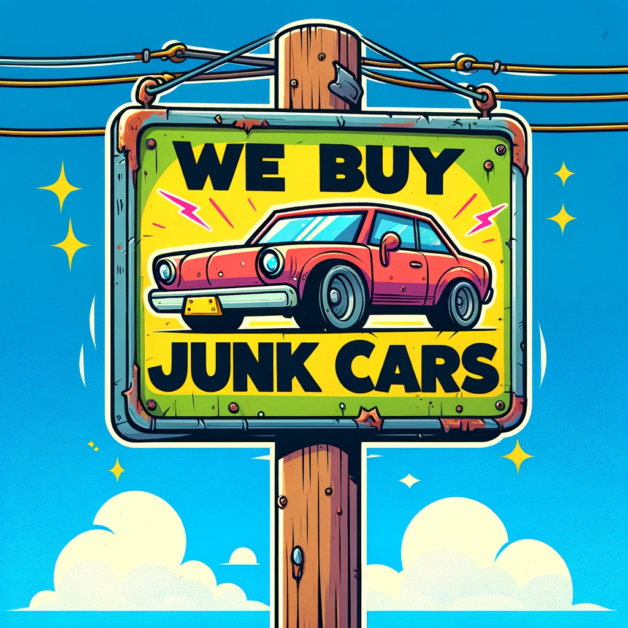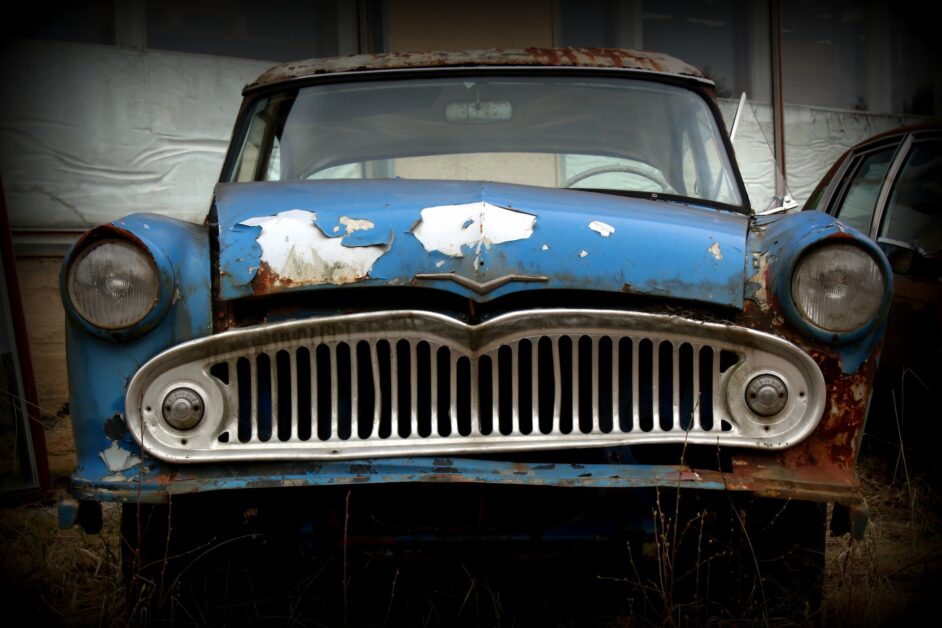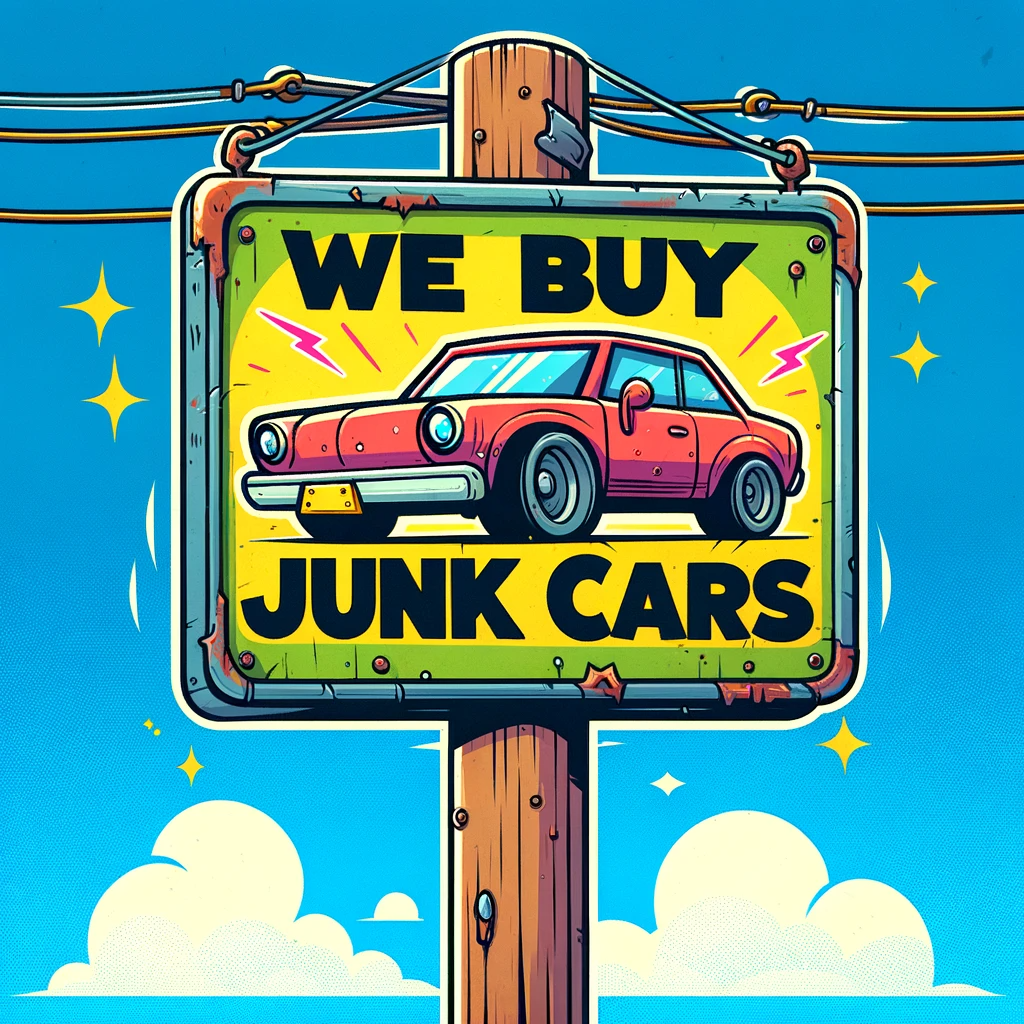
Are you looking to sell your junk car for cash? Across the United States, numerous services are available to take your old, damaged, or unwanted car off your hands. Selling your junk car can be a quick and efficient way to earn some extra cash while getting rid of a vehicle that’s no longer useful to you.
Understanding the Junk Car Market
The market for junk cars is vast and varied. While some cars might be old and run-down, they could still hold value in parts or scrap metal. This is why many services are interested in buying junk cars in any condition.
Understanding the Concept of ‘Junking’ a Car
Have you ever noticed signs or online advertisements offering cash for junk cars? This is all about the concept of ‘junking’ a car. Essentially, junkyards purchase vehicles that are either inoperable or past their prime to salvage and recycle them. These vehicles can be stripped for usable parts or simply dismantled for their scrap metal. The junkyard then sells these parts or the reclaimed materials, making a profit from vehicles that are no longer roadworthy.
When a junkyard acquires a dilapidated car, they pay the car’s owner and then generate revenue by repurposing components of the decommissioned vehicle.
The Hassle-Free Process of Selling Your Junk Car
Many junk car buyers across the country offer a streamlined process. This often includes handling all the necessary paperwork, providing free towing services, and offering cash on the spot. This hassle-free approach is designed to make the process as easy as possible for you.
Tips for Dealing with Buyers
- Research Different Buyers: Look into various buyers to find the best deal. Compare offers from local scrapyards, online buyers, and national car buying services.
- Know Your Car’s Value: Understand the approximate value of your car. This includes its make, model, year, condition, and the current price of scrap metal.
- Prepare Necessary Documents: Even if a title isn’t required, having your car’s paperwork in order can facilitate the process.
- Beware of Scams: Be cautious of buyers who don’t offer clear terms or who request upfront payments.
- Negotiate the Price: Don’t be afraid to negotiate the offer to get a fair price for your car.
Securing Proof of Vehicle Ownership
Before proceeding with selling a car to a junkyard, it’s crucial to establish clear legal ownership of the vehicle. This typically involves having the car’s title in hand. If you’ve misplaced the title, obtaining a replacement is a necessary step. This process usually requires a visit to your local Department of Motor Vehicles (DMV) or Bureau of Motor Vehicles (BMV), along with a small fee. You’ll need to fill out some forms and provide identification to the clerk. Acquiring a replacement title might take a few days to weeks, but it’s an essential prerequisite for legally selling your vehicle to any third party.
Additionally, the vehicle must be owned outright, meaning any liens or loans against the vehicle must be fully settled. This is important because a car with outstanding financial obligations cannot be legally transferred to a new owner. Check with your state’s DMV or BMV for specific forms and documents required to establish and transfer ownership of a vehicle. Without clear proof of ownership, you won’t be able to sell the car.
In some instances, however, certain buyers may be willing to purchase vehicles without a title, depending on the regulations of your state. In these situations, alternative proof of ownership, such as registration documents or a bill of sale, might be accepted. It’s important to communicate with the buyer to understand what documentation will be necessary in lieu of a title. Keep in mind that selling a vehicle without a title often involves additional steps to ensure that all legal requirements are met, such as verifying the absence of liens and confirming the seller’s identity. This process can vary from state to state, so consulting with your local DMV or BMV for guidance is advisable.
Key Takeaways
- Nationwide Services: There are many buyers across the U.S. willing to purchase junk cars in any condition.
- Paperwork and Pickup: Sellers can expect most buyers to handle paperwork and offer free pickup services.
- Value Assessment: The value of a junk car can depend on various factors, including condition, make, model, and current scrap metal prices.

Why Selling a Junk Car Makes Sense
Selling a junk car often makes more sense than holding onto it for several reasons, particularly when repairs are not feasible or financially justified. Here are some considerations:
- Cost of Repairs Exceeds Value: If the cost to repair your car surpasses its current market value, it’s economically wiser to sell it as junk. Continuing to invest in a vehicle that won’t offer a return on investment can lead to a financial loss.
- Frequent Breakdowns: If your car is consistently breaking down, it becomes not only a financial burden but also a reliability issue. Selling it removes the stress and unpredictability associated with its operation.
- Safety Concerns: Older cars, especially those requiring significant repairs, might not meet current safety standards. Selling such a car eliminates potential safety hazards.
- Environmental Considerations: Older vehicles are often less efficient and more polluting. Removing them from the road can be a step towards a more environmentally responsible lifestyle.
- Free Up Space: A non-functioning car takes up valuable space in your garage or driveway. Selling it frees up this space for other uses.
- Instant Cash: Selling a junk car provides immediate financial gain, which can be used towards purchasing a more reliable and efficient vehicle.
How to Know if Repairs are Not Possible or Worthwhile
- Assess Repair Costs: Get a professional mechanic to provide a detailed estimate of repair costs. If these costs are higher than the car’s value or a significant portion of it, repairs might not be justified.
- Consider the Car’s Age: Older cars may not be worth repairing due to their diminished value and the likelihood of future breakdowns.
- Availability of Parts: For very old or rare cars, finding replacement parts can be difficult and expensive, making repairs impractical.
- Check Safety Features: If your car lacks essential safety features found in newer models, investing in repairs might not be advisable.
- Evaluate Frequency of Breakdowns: A car that frequently needs repairs may indicate systemic issues that are not worth resolving.
- Consult with Professionals: Mechanics can offer insights into whether a car is salvageable and worth the investment. Their expertise can guide your decision.
- Insurance and Registration Costs: If maintaining insurance and registration for an old, unreliable car is costly, it might be more economical to sell it.
- Consider Your Needs: If your lifestyle or needs have changed (e.g., requiring a more reliable vehicle for commuting), repairing an old car might not align with your current requirements.
In summary, selling a junk car is often a practical decision driven by economic, safety, and practical considerations. It can relieve you of the financial burden and stress associated with maintaining an old, unreliable vehicle.
The Advantages of Selling Your Junk Car
- Quick Cash: Selling your junk car can be a quick way to earn money.
- Free Up Space: Get rid of a vehicle that’s taking up space on your property.
- Eco-Friendly: Many junk cars are recycled, which is beneficial for the environment.
- Convenience: Most buyers will handle all the details, making the process easy for you.
Nationwide Options for Selling Your Junk Car
- Local scrapyards: They generally pay based on the weight and scrap value of your vehicle.
- Online platforms: These services offer convenience with online quotes and pickup arrangements.
- National car buying brands: They often have a broad network and competitive pricing structures.
FAQs: Cash for Junk Cars
How much cash can I expect?
The amount you can receive for your junk car varies widely based on factors like the car’s make, model, condition, age, and the current market for scrap metal. While it’s difficult to pinpoint an exact figure without specific details, it’s not uncommon for some vehicles to garner offers of $500 or more.
Who will handle the paperwork?
In most cases, the buyer of the junk car will handle the majority of the necessary paperwork. This typically includes transferring the title and any other documentation required by state law. However, as the seller, you may need to provide certain documents, like the car’s title and your identification.
Are there any fees?
Many buyers, especially those who specialize in purchasing junk cars, will offer services such as free towing, meaning there are no hidden fees for you to worry about. It’s always a good idea to confirm this with the buyer beforehand to avoid unexpected charges.
Can I sell a car in poor condition?
Yes, you can sell a car regardless of its condition. Most junk car buyers are interested in vehicles in any state, even those that are heavily damaged, non-running, or missing parts. The value of the car will be based on its salvageable components and scrap metal worth.
Do I need to have the car’s title?
Having the car’s title is ideal and simplifies the selling process. However, some buyers are willing to purchase vehicles without a title, depending on state regulations. In such cases, you may be required to provide alternative proof of ownership, such as registration documents.
How quickly will I receive payment?
The speed of payment can vary, but many junk car buyers aim to provide quick transactions. Often, you can expect to receive payment on the spot when your car is picked up or immediately after it’s delivered to the buyer.
Selling your junk car is not just about making some extra cash; it’s also about convenience and efficiency. With numerous buyers across the country, you can find a service that meets your needs and provides you with a fair deal for your vehicle.


